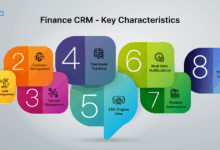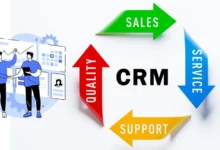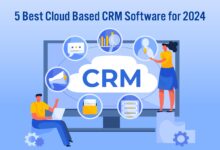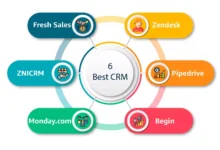Affordable CRM Software for Startups
Affordable CRM Software for Startups is crucial for early-stage businesses navigating rapid growth. Finding the right balance between cost-effectiveness and functionality is key to maximizing ROI and efficiently managing customer relationships. This guide explores various affordable CRM options, considering budget constraints, essential features, and scalability for startups at different growth stages. We’ll delve into the nuances of selecting, implementing, and leveraging a CRM system to streamline operations and foster customer loyalty.
From understanding budget allocations for CRM within a startup’s overall tech spending to choosing between cloud-based, open-source, or freemium solutions, this comprehensive overview empowers startups to make informed decisions. We’ll examine the importance of vendor support, data migration strategies, and selecting a system that can adapt to a company’s evolving needs. The goal is to equip startups with the knowledge necessary to harness the power of CRM without breaking the bank.
Defining “Affordable” for Startups
Defining “affordable” CRM software for startups is relative and depends heavily on the company’s stage, funding, and overall technological needs. What’s considered a reasonable investment for a seed-stage startup will likely differ significantly from a Series A or later-stage company. This necessitates a nuanced approach to budgeting for CRM solutions.
Budget Ranges for CRM Software Across Startup Stages
The cost of CRM software can significantly impact a startup’s bottom line. Understanding the relationship between budget and features is crucial for making informed decisions. The following table provides a general guideline for monthly budget ranges at different startup stages, keeping in mind that these are estimates and can vary based on specific needs and chosen software.
| Startup Stage | Budget Range (USD/month) | Features Expected | Example Software Categories |
|---|---|---|---|
| Seed Stage | $0 – $500 | Basic contact management, lead tracking, simple reporting. Often limited users. | Free CRM options, low-cost plans of popular CRMs. |
| Series A | $500 – $2000 | More advanced features like sales pipeline management, marketing automation integration, custom reporting, and potentially more users. | Mid-tier CRM plans with expanded functionalities. |
| Series B and beyond | $2000+ | Extensive features, integrations with multiple business tools, advanced analytics, custom development options, and robust user management. Scalability is a key consideration. | Enterprise-level CRM solutions with extensive customization and support. |
Trade-offs Between Cost and Features in Affordable CRM Options
Choosing affordable CRM software often involves compromising on certain features. Free or very low-cost options typically provide basic contact management and lead tracking, but may lack advanced features like marketing automation or robust reporting capabilities. Mid-tier options offer a broader feature set but at a higher price point. Startups need to carefully weigh the value of specific features against their budget constraints. For example, a seed-stage startup might prioritize basic contact management and lead tracking, delaying the implementation of more advanced features until later stages of growth. Conversely, a Series A company might find the cost of advanced features justifiable given the potential ROI from improved sales and marketing efficiency.
Hypothetical Budget Allocation for CRM Software Within a Startup’s Overall Tech Spend
A typical startup might allocate a percentage of its overall technology budget to CRM software. This percentage can vary significantly based on the industry, business model, and stage of the startup. For example, a SaaS startup heavily reliant on sales might allocate a larger percentage (e.g., 5-10%) of its tech budget to CRM than a startup with a primarily self-service model. A hypothetical allocation could look like this: A startup with a $100,000 annual tech budget might allocate $5,000-$10,000 annually (or $417-$833 monthly) to CRM software. This would allow for a mid-tier solution with a decent feature set, ensuring the software meets current needs without overspending. The exact allocation should be a strategic decision based on a thorough assessment of the startup’s requirements and financial capabilities.
Key Features for Startups
Choosing the right CRM is crucial for a startup’s success. A well-integrated CRM system streamlines operations, improves customer relationships, and ultimately drives growth. Focusing on features that directly impact customer acquisition and early-stage business development is key.
The core functionality of a CRM system centers around managing interactions with potential and existing customers. This involves tracking leads, managing contacts, and analyzing sales performance. However, the specific features and their implementation vary greatly depending on the chosen software, budget, and the startup’s unique needs.
Top 5 Must-Have CRM Features for Customer Acquisition
For startups prioritizing customer acquisition, certain CRM features prove invaluable. These features facilitate efficient lead management, streamlined communication, and data-driven decision-making, all critical for early growth.
- Lead Management: Robust lead capture and tracking capabilities are essential. This includes features like lead scoring, automated workflows, and customizable fields to categorize and prioritize leads based on their potential value.
- Contact Management: A centralized database to store and manage all customer information – contact details, interaction history, and purchase history – ensures consistent and personalized communication.
- Sales Pipeline Management: Visualizing the sales process allows startups to monitor progress, identify bottlenecks, and optimize their sales strategies. Features like kanban boards or pipeline views are beneficial.
- Communication Tools: Integrated communication tools, such as email marketing and direct messaging capabilities, enable efficient and consistent engagement with leads and customers. This improves response rates and strengthens relationships.
- Reporting and Analytics: Data-driven insights are crucial for informed decision-making. Reporting features that track key metrics like lead conversion rates, sales performance, and customer acquisition costs are essential for optimizing marketing and sales efforts.
Free CRM vs. Paid CRM: Essential Feature Comparison
The choice between free and paid CRM software often hinges on a startup’s budget and scalability needs. While free options offer basic functionalities, paid versions typically provide more advanced features and support.
| Feature | Free CRM | Paid CRM |
|---|---|---|
| Contact Management | Limited number of contacts, basic fields | Unlimited contacts, customizable fields, advanced segmentation |
| Lead Management | Basic lead tracking, limited automation | Advanced lead scoring, automation workflows, lead routing |
| Reporting & Analytics | Basic reports, limited data visualization | Detailed reports, customizable dashboards, advanced analytics |
| Integration Capabilities | Limited or no integrations | Extensive integrations with marketing automation, email marketing, and other business tools |
| Customer Support | Limited or no support | Dedicated customer support, training resources |
Benefits of CRM Integration with Other Startup Tools
Integrating the CRM with other essential startup tools significantly enhances efficiency and data analysis. This synergy allows for a more holistic view of customer interactions and business performance.
For example, integrating a CRM with marketing automation software automates repetitive tasks, such as email sequences and lead nurturing campaigns. This integration allows for personalized communication based on customer behavior and preferences, leading to improved conversion rates. Similarly, integrating with email marketing platforms streamlines communication and allows for tracking email open and click-through rates, providing valuable data for campaign optimization. This data-driven approach allows startups to refine their strategies and maximize their marketing ROI.
Types of Affordable CRM Software
Choosing the right CRM for your startup can feel overwhelming, but understanding the different types available simplifies the process. This section categorizes affordable CRM options based on their deployment model, licensing, and features, helping you identify the best fit for your needs and budget. We’ll examine cloud-based, open-source, and freemium models, highlighting their advantages and disadvantages.
Cloud-Based CRM Software
Cloud-based CRMs are hosted on the vendor’s servers and accessed via the internet. This eliminates the need for on-site server maintenance and often provides scalability and accessibility benefits.
- Zoho CRM: A comprehensive CRM with a range of features suitable for various business sizes, offering flexible pricing plans.
- HubSpot CRM: A popular free CRM with paid options for advanced features, known for its marketing automation capabilities.
- Freshsales: A user-friendly CRM focusing on sales automation and team collaboration, with competitive pricing.
Cloud-based CRMs offer easy accessibility from anywhere with an internet connection and typically require minimal upfront investment. However, they rely on a stable internet connection and data security depends entirely on the vendor’s infrastructure and security protocols.
Open-Source CRM Software
Open-source CRMs offer the source code freely available, allowing for customization and self-hosting. This provides greater control but demands technical expertise for setup and maintenance.
- SuiteCRM: A popular open-source alternative to SugarCRM, offering a wide array of features.
- Dolibarr ERP CRM: A comprehensive open-source solution that integrates ERP and CRM functionalities.
Open-source CRMs provide significant cost savings and customization flexibility. However, they require technical skills for installation, configuration, and ongoing maintenance. Security and updates are the responsibility of the user.
Freemium CRM Software
Freemium CRMs offer a basic version free of charge, with paid options for advanced features and increased user limits. This allows startups to start small and upgrade as their needs grow.
- HubSpot CRM (Free Version): Offers core CRM features like contact management and basic sales pipeline tracking.
- Bitrix24 (Free Version): Provides a basic CRM with limited users and storage, alongside project management tools.
Freemium CRMs offer a low-risk entry point, allowing startups to test the waters before committing to a paid subscription. However, free versions often have limitations on features, users, and storage capacity, potentially restricting scalability.
CRM Software Designed for Small Businesses and Startups
Many CRMs cater specifically to the needs of small businesses and startups, often offering simplified interfaces, streamlined features, and affordable pricing plans. These solutions prioritize ease of use and rapid implementation.
- Pipedrive: Focuses on sales pipeline management, providing a clean and intuitive interface.
- Agile CRM: Offers a comprehensive suite of tools including marketing automation, sales, and customer support features.
These specialized CRMs provide a good balance between functionality and affordability, focusing on features most relevant to smaller businesses. However, they might lack the advanced features offered by larger enterprise-level CRMs.
Implementation and Scalability
Implementing an affordable CRM system effectively within a startup requires careful planning and execution. The process differs from larger organizations due to resource constraints and the dynamic nature of a rapidly growing business. Choosing a system that can adapt to this growth is crucial for long-term success and avoiding costly migrations later.
The selection and implementation of a scalable CRM directly impacts operational efficiency and data management. A well-chosen system streamlines workflows, improves customer relationships, and provides valuable insights for informed decision-making. Conversely, a poorly chosen system can lead to data silos, inefficiencies, and ultimately, hinder growth.
CRM System Implementation Process for Startups
Implementing a CRM within a startup typically involves several key stages. First, a thorough needs assessment is crucial to identify specific requirements and features needed based on the startup’s current operations and projected growth. This includes defining key performance indicators (KPIs) that will be tracked within the CRM. Next, the chosen system must be configured to match these requirements, potentially involving customization and integration with other business tools. Thorough training for the team is essential to ensure effective adoption and utilization. Finally, ongoing monitoring and adjustments are necessary to optimize the system’s performance and address any emerging challenges. For example, a startup might begin with a basic contact management system and gradually add features like sales pipeline tracking and marketing automation as it grows.
Choosing a Scalable CRM System
Selecting a CRM system capable of scaling with a startup’s growth involves considering several factors. Cloud-based solutions generally offer better scalability than on-premise systems, allowing for easy adjustments in storage and processing power as the business expands. Modular systems, which allow for adding features as needed, are also preferable to monolithic systems that require significant upfront investment. Furthermore, consider the CRM’s API capabilities, enabling integration with other tools and services the startup might use as it grows, such as marketing automation platforms or e-commerce systems. For instance, a startup might initially choose a CRM with basic sales tracking, then add marketing automation capabilities as its marketing efforts mature.
Data Migration from a Simpler System
Migrating data from a simpler system (like a spreadsheet) to a more robust CRM involves a structured approach. Begin by thoroughly cleaning and validating the existing data to ensure accuracy and consistency. This involves identifying and correcting any inconsistencies or errors in the data. Next, map the data fields from the old system to the corresponding fields in the new CRM. This ensures that data is accurately transferred and easily accessible in the new system. Then, utilize the CRM’s data import functionality to transfer the data, carefully reviewing the import process to ensure data integrity. Finally, conduct thorough testing and validation to confirm that the data has been migrated correctly and is accessible within the new CRM. For example, a startup might migrate contact information from a Google Sheet to a more sophisticated CRM, ensuring all customer details are accurately transferred and easily accessible to the sales team.
Support and Training
Choosing the right CRM is about more than just features; robust support and training are crucial for startups to maximize their investment and ensure a smooth transition. Without proper guidance, even the most affordable CRM can become a frustrating and underutilized tool. The right support infrastructure can significantly impact user adoption, data accuracy, and ultimately, the success of your CRM implementation.
Effective support and training are directly linked to a startup’s ability to quickly learn and efficiently use their CRM system. This translates to increased productivity, better customer relationships, and a faster return on investment. Lack of adequate support, on the other hand, can lead to wasted time, user frustration, and ultimately, a failure to achieve the desired results.
Support Channels Offered by Affordable CRM Providers
Different affordable CRM providers offer varying levels of support. Some may offer only email support, while others provide phone, chat, and extensive knowledge base resources. The availability and responsiveness of these channels significantly influence the user experience. For instance, HubSpot’s free CRM offers extensive documentation and community forums, but lacks dedicated phone support, while Zoho CRM offers a tiered support system with varying response times depending on the plan. Salesforce’s Essentials plan, while not strictly “affordable” for all startups, serves as an example of a more comprehensive support structure typically found in higher-priced options, offering phone, email, and chat support. The quality of support, however, isn’t solely determined by the channels offered but also by the expertise and responsiveness of the support staff.
Evaluating CRM Vendor Support Quality
When evaluating the quality of support, several criteria should be considered. A comprehensive assessment ensures startups choose a provider that aligns with their needs and resources.
- Response Time: How quickly does the vendor respond to support requests? Aim for providers with documented Service Level Agreements (SLAs) guaranteeing response times within a reasonable timeframe (e.g., within 24 hours for critical issues).
- Support Channels: What channels are available (email, phone, chat, community forums)? Consider your team’s preferences and the urgency of your support needs.
- Knowledge Base and Documentation: Is there a comprehensive knowledge base with FAQs, tutorials, and troubleshooting guides? A robust knowledge base reduces the need for direct support interaction.
- Support Staff Expertise: Does the support team possess the technical expertise to address complex issues effectively? Look for reviews and testimonials that highlight the expertise of the support staff.
- Training Resources: Does the vendor offer training resources such as webinars, video tutorials, or in-person training sessions? Comprehensive training materials are essential for maximizing user adoption and efficiency.
Types of Training Provided
The type of training offered can range from self-service resources like online documentation and video tutorials to more interactive methods like webinars and live workshops. Some vendors may also offer personalized onboarding sessions for new customers. The availability and quality of these resources directly impact the ease of CRM adoption and user proficiency. For example, a vendor providing only limited written documentation might be less suitable for a startup lacking dedicated IT support, compared to a vendor with extensive video tutorials and online training courses.
Illustrative Examples
Choosing the right CRM is crucial for a startup’s success. The ideal system will depend heavily on the specific needs and growth trajectory of the business. Let’s examine how different startups might leverage affordable CRM solutions.
Startup Examples and CRM Suitability
Three hypothetical startups illustrate the diverse CRM needs within the startup ecosystem. Each example demonstrates how a specific affordable CRM solution can address unique challenges.
- Startup A: “GreenThumb Gardens,” an e-commerce business selling organic gardening supplies. GreenThumb needs a CRM that handles online orders, tracks customer interactions across multiple channels (website, email, social media), and manages inventory. A user-friendly CRM with e-commerce integration, like HubSpot CRM (free version) or Zoho CRM (affordable paid plans), would be ideal. These platforms offer robust contact management, order tracking, and reporting features, allowing GreenThumb to understand customer purchasing behavior and personalize marketing efforts. The free plan of HubSpot CRM could initially suffice, scaling to a paid plan as GreenThumb grows.
- Startup B: “CodeCraft Solutions,” a software development company offering custom web applications. CodeCraft requires a CRM that tracks leads, manages projects, and facilitates communication with clients. A CRM with project management capabilities, such as Pipedrive (affordable plans) or Monday.com (with CRM features), would be beneficial. These CRMs allow CodeCraft to track the progress of projects, manage deadlines, and maintain clear communication with clients throughout the development lifecycle. Pipedrive’s focus on sales pipeline management aligns well with CodeCraft’s need to track project stages and client interactions.
- Startup C: “WellnessWise,” a mobile personal training service. WellnessWise needs a CRM that helps schedule appointments, track client progress, and manage communication. A simpler CRM with appointment scheduling features, like Calendly (with integrations) or Acuity Scheduling (with CRM features), could be sufficient. These tools allow WellnessWise to streamline scheduling, send automated reminders, and track client progress, ensuring efficient service delivery. Integrating these with a basic contact management system ensures client information is centralized.
Managing Customer Interactions with HubSpot CRM
Let’s consider how HubSpot CRM (free version) could manage customer interactions for GreenThumb Gardens throughout the sales funnel.
- Awareness: GreenThumb uses social media marketing and targeted ads to attract potential customers. HubSpot’s contact forms capture lead information directly from the website.
- Interest: Engaging content (blog posts, email newsletters) nurtures leads. HubSpot’s email marketing tools automate this process, segmenting audiences based on their engagement level.
- Decision: Personalized email sequences and targeted promotions guide leads toward purchase. HubSpot’s deal pipeline tracks the progress of each potential sale.
- Action: Customers make purchases via GreenThumb’s e-commerce platform. HubSpot automatically updates contact information and order details within the CRM.
- Loyalty: Post-purchase emails, loyalty programs, and personalized recommendations foster customer retention. HubSpot’s reporting and analytics features track customer lifetime value.
Illustrative CRM Dashboards
Below are text-based representations of how different CRM dashboards might appear for each startup type.
SaaS Startup Dashboard (CodeCraft Solutions)
“`
+———————————+
| CodeCraft Solutions CRM |
+———————————+
| Projects: |
| – Project Alpha (In Progress) |
| – Project Beta (On Hold) |
| – Project Gamma (Completed) |
+———————————+
| Clients: |
| – Acme Corp (Contact: John Doe) |
| – Beta Solutions (Contact: Jane Smith) |
+———————————+
| Upcoming Deadlines: |
| – Project Alpha: 10/27/2024 |
+———————————+
“`
E-commerce Startup Dashboard (GreenThumb Gardens)
“`
+———————————+
| GreenThumb Gardens CRM |
+———————————+
| Recent Orders: |
| – Order #1234 (Total: $50) |
| – Order #1235 (Total: $25) |
+———————————+
| Top Selling Products: |
| – Organic Tomato Seeds |
| – Herb Starter Kit |
+———————————+
| Customer Segmentation: |
| – High Value Customers (100) |
| – Returning Customers (500) |
+———————————+
“`
Service-Based Startup Dashboard (WellnessWise)
“`
+———————————+
| WellnessWise CRM |
+———————————+
| Upcoming Appointments: |
| – John Doe (10/26/2024, 9:00 AM)|
| – Jane Smith (10/26/2024, 10:00 AM)|
+———————————+
| Client Progress: |
| – John Doe (Weight Loss: 5 lbs) |
| – Jane Smith (Strength Gain: 10%)|
+———————————+
| Client Communication: |
| – New messages from 2 clients |
+———————————+
“`
Conclusive Thoughts
Ultimately, choosing the right affordable CRM software for a startup hinges on a careful assessment of current needs and future scalability requirements. By understanding the trade-offs between features and cost, and prioritizing essential functionalities, startups can leverage CRM technology to improve customer relationships, boost sales, and drive sustainable growth. Remember to factor in the importance of robust support and training when making your final selection, ensuring a smooth implementation and ongoing success.





